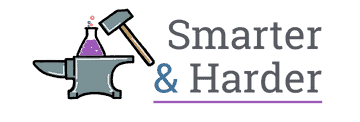Are you living your life on purpose? Most people would instinctively say that yes, of course, we are. But how do you know? What separates a life defined by intentional choices and constant progress from one dominated by unconscious entropy?
The Habit Dilemma
Something fascinating about the human mind is its ability to self-automate. Mechanisms like habits and routines are great for keeping the ball rolling on helpful behaviors while freeing up our brainpower for issues that are more pressing in the short term. Whether your focus is on improving your finances, physical health, mental health, career, or any other life-improving goal, this self-automation can be instrumental in getting you there.
But it comes at a cost. Not every habit is a good habit, and a life too rigidly defined by routine can keep you stuck in one place or slowly and steadily drifting away from the life you want.
A life made up entirely of routine usually lacks movement, growth, and opportunity. When every day is the same, and every action looks just like every other day, there is no longer enough room for new thoughts, fresh ideas, and opportunities for breakthrough progress.
Here lies the dilemma with habits. They are one of the most powerful tools for making positive life changes when used effectively. But there exists a line where automatic routine ceases to be a tool and becomes a framework that inhibits growth, progress, and joy. So if we’re going to truly live on purpose, define our ideal outcomes and then realize them, we will need to figure out how to balance this pattern of routine, habit, and familiarity.
But Wait, What Does “Life on Purpose” Even Mean, Exactly?
Let’s slow down for a quick second, back up a bit, and look at what “life on purpose” even means. First, and most simply, it is about intentionality. Living life intentionally means making deliberate choices. But, by and large, everything in an intentional life is there because you’ve chosen for it to be. Not because it “just showed up” or has always been there.
But “on purpose” is one of those phrases with another meaning hiding in plain sight. It’s such a common phrase that it almost melts together into a single word, ‘onpurpose’, a synonym for intentionally (like above). But there are two words in there:
On (or in service to) an actual purpose, goal, or objective
It may seem unnecessary to break it out this way, but think about it. Remember, we’re being intentional here. How much of your day do you spend doing something on purpose, i.e., working toward a clear goal?
Do you have a specific purpose right now? Either a general, overarching purpose you’re pursuing or a current goal or purpose for where you’re going next? Even a single, granular purpose for what you want to do with this day will suffice. If you don’t know yet, that’s okay. It will come.
Living life on purpose is both of these things — knowing what purpose you aim to serve right now, whether big or small, and living intentionally and deliberately to achieve that purpose.
How Do I Start Living My Life on Purpose?
So we know what we want: a clear vision of where we’re going and an intentional approach to fulfilling that vision. All we need now is a few tools for injecting that intentionality, and then we’re on our way to living life on purpose.
Planning Your Life on Purpose
I’m a planner. Spreadsheets and lists are practically my love language. But you don’t have to be as over the top with it as I am to reap the immense benefit of a little bit of forethought.
Pretty much everyone has (at the very least) some vague sense of what they want out of their life in the long term, where they’d like to go next, or something that they want to be different from their current status quo. And there’s never been any harm in sitting down and having an honest conversation with yourself about those aspirations. There’s a reason things like vision boards have been around for so long. Documenting your purpose in some form is essential to achieving it because it helps you:
- Clarify the result you want
- Keep that result in the forefront of your mind
- Identify the steps it will take to get there
- Hold yourself accountable for pursuing that purpose
Tracking and updating clearly defined goals will always be a prerequisite to achieving them.
Productive Habits and Automation
At the top of this post, we talked about habits and how a life that is too rigidly defined by routine and familiarity can be a significant blocker to an intentional life. But this doesn’t mean that habits themselves are bad or necessarily exist in opposition to living life on purpose.
As a concept, habits are pretty neutral. Neither good nor bad, but with the potential to become either. Habits keep something moving without us needing to put much thought into maintaining the direction.
Assess the habits you do have, carefully choose and build the ones that move you toward your purpose, while breaking down and replacing those which would hold you back.
Venture into the Discomfort Zone
This separation between productive habits and stagnant routine closely parallels another concept that comes up frequently around here: the all-important balance between comfort and discomfort. It cannot be stressed enough that while spending some time in your comfort zone is vital for mental health, life is not complete without also spending some time in your discomfort zone.
Putting yourself into situations that make you feel uncomfortable is a perfect remedy for when things start getting a little too familiar and life is running on autopilot. It’s like a splash of cold water to the face – refreshing, and it jolts you back to awareness.
If life is getting sleepy and you’re coasting toward (or already deep into) a rut, wake yourself up with a bit of discomfort and give yourself the alertness you need to get back to living life on purpose.
Questioning
One of my favorite tools that comes into play with so many different ways of improving life, we once again arrive at the ever-useful power of asking great questions.
Living life on purpose is primarily about noticing and deciding — observing yourself, your situation, your routines, actions, and thoughts, and making conscious choices about what goes there rather than unconscious ones. No one here is talking about you actively sabotaging your possibilities or fighting against getting where you want to go — none of that. What we’re talking about today is taking the unconscious, and making it conscious.
Ask yourself questions about your day:
- Why am I doing this right now? Is this a good use of my time?
- Am I serving my purpose today or giving in to distractions?
- How am I going to move closer to my purpose?
- Does this fit my plan or move me toward my goals?
There are many more, but you get the idea. Build the habit of interrupting yourself and being an outside observer. Temporarily pause your routine to check if it is where you want yourself to be, and you’ll quickly find yourself more easily aligning with your core purpose.


I like the idea of intentionally being an outsider looking in. It’s amazing how straight forward it sounds, yet it definitely flirts with that ‘discomfort zone’ you mentioned! But such an important tool in self assessment and achieving goals.